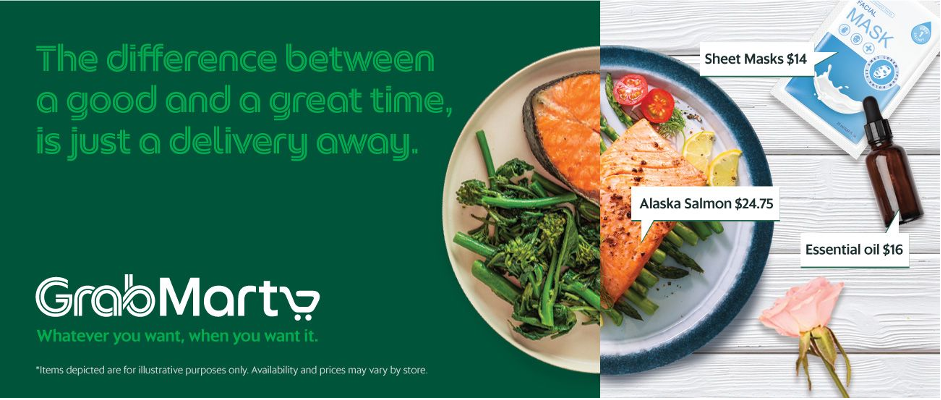The Covid-19 pandemic is by no means over, but it has fundamentally changed the world as we know it. As consumers around the globe adapt to the new normal, new behaviours are also emerging across different aspects of life. People are living differently, buying differently and in various ways, thinking differently. There’s no doubt that some of these fundamental shifts will have long-lasting effects on consumer purchasing behaviour – and they are here to stay. More so than ever, brands should keep a close eye on consumer trends and anticipate how consumer behaviour is changing in order to stay ahead of the curve. The marketing landscape is shifting rapidly, and consumers are going to demand more from the brands they choose and the ones that fail to respond or resonate with them, will not survive. By staying up to date with trends and reframing your marketing plan to suit your consumers’ needs, it will help your brand to maintain relevance in the eyes of your consumers.
How to adapt to changing consumer behaviour
1. Identify and meet emerging needs
With the effects of the pandemic, consumers are responding to the crisis in many different ways. On one hand, some consumers feel anxious and load up on staples and essentials in a state of panic. On the other hand, some remain unfazed and continue with the way they shop as per pre-pandemic days. One key disruption in consumer behaviour across the board though, is the rise in digitalisation and e-commerce. Digital consumption has risen substantially and will continue to grow at a rapid pace as people spend more time working from home, and connecting digitally with their friends, family as well as their go-to brands. In particular, e-commerce has seen a global surge this year as more people flock to online channels to shop for essential goods and leisure items.
In fact, Singapore is one of the fastest growing e-commerce markets in Southeast Asia, with its digital economy expected to earn US$500 million annually (Source: Accenture). As several trends are accelerated by Covid-19, this is an opportunity for brands to pick up on consumer behavior changes and reinvent ways to engage with their consumers. These trying times make it especially important for brands to view consumers as individuals instead of grouping them into segments.

As the pandemic saw more people staying home, ride-hailing and food-ordering app, Grab, pivoted towards at-home needs so as to cater to the growing demand for online food and grocery deliveries (Source: Techinasia). With a sharp decline in its ride-hailing business, over 100,000 drivers in six markets made the switch to deliver food and essential supplies instead (Source: Techcrunch). Grab also added new offerings for at-home purchases by launching GrabMart, an on-demand goods delivery service that helps users buy consumer goods such as groceries and home essentials. Taking notes from Grab, brands should learn to consider the needs shaping consumer behaviour, and adapt their marketing strategies accordingly to provide real and timely value to consumers – ultimately maintaining strong footing both today and a post-covid world.
2. Humanise your brand approach
In times of uncertainty, brands must focus on instilling confidence in consumers who are in dire need of information and guidance. Humanity in brand messaging is thus now more important than ever before. According to a study from Braze and Forrester, consumers want sincere and human-like communication from their preferred brands right now (source: The Drum). Rather than focusing on the brand itself, brands should listen to consumers and cater to their needs. This could be in terms of providing consumers with the right information, or going above and beyond to help them get through their problems. Being empathetic and prioritising customer experience will help your brand stand out and have a leg up over those who turn a blind eye.

In April 2020, fast food restaurant McDonalds released a video advertisement titled “Lights On” to inform consumers that its Drive Thrus remain open amid the pandemic. The short 30-second video perfectly encapsulates the idea that while everything may feel different right now, they’re still open and consumers can still enjoy the food they love. Here’s the twist: this entire production was made remotely – meaning that everyone involved worked in full isolation with no contact with anyone else. By doing so, McDonalds effectively conveys the message that people can still enjoy their food while adhering to rules – retaining a sense of normalcy while keeping a safe distance. Likewise, brands could learn from McDonalds and continuously pivot their marketing strategy to connect with consumers in a genuine and relevant way that aligns with their values in that moment.
3. Give back to the community
Consumers are becoming increasingly mindful of what they buy – and it is a mindset that is likely to continue in the long run. Many today strive to limit food waste, shop more cost consciously, and opt for more sustainable options. In the current landscape, consumers are looking to their preferred brands to play an active role in addressing social, cultural and environmental issues. According to findings by Deloitte, consumers today care most about how brands treat the environment and support communities (Source: Deloitte). When brands align their business with doing good, they can build deeper connections with consumers and in turn, amplify the brand’s relevance in consumers’ lives.

A brand that supported communities and consumers during the Covid-19 crisis is none other than online fashion retailer ZALORA. In collaboration with The Red Cross, ZALORA Singapore activated an e-donation drive titled #ZALORACares to support frontliners as well as underprivileged families. Proceeds from the e-donation drive will be used to fund customised care packages and psychosocial call services for senior citizens living alone, as well as sanitation kits for Red Cross Singapore’s personnels who continue to lend a helping hand to the vulnerable.
In a post Covid-19 world, consumer behaviour has changed dramatically – many consumers are adopting new habits and behaviours that are likely to continue in the long term. To stay relevant, brands have to act now and reframe their future around evolving consumer behaviours to build lasting and meaningful relationships with them. If you need guidance in shifting your marketing approach, drop us a message and we’ll be happy to advise!
— —
Hero image: Charles Deluvio, Unsplash
